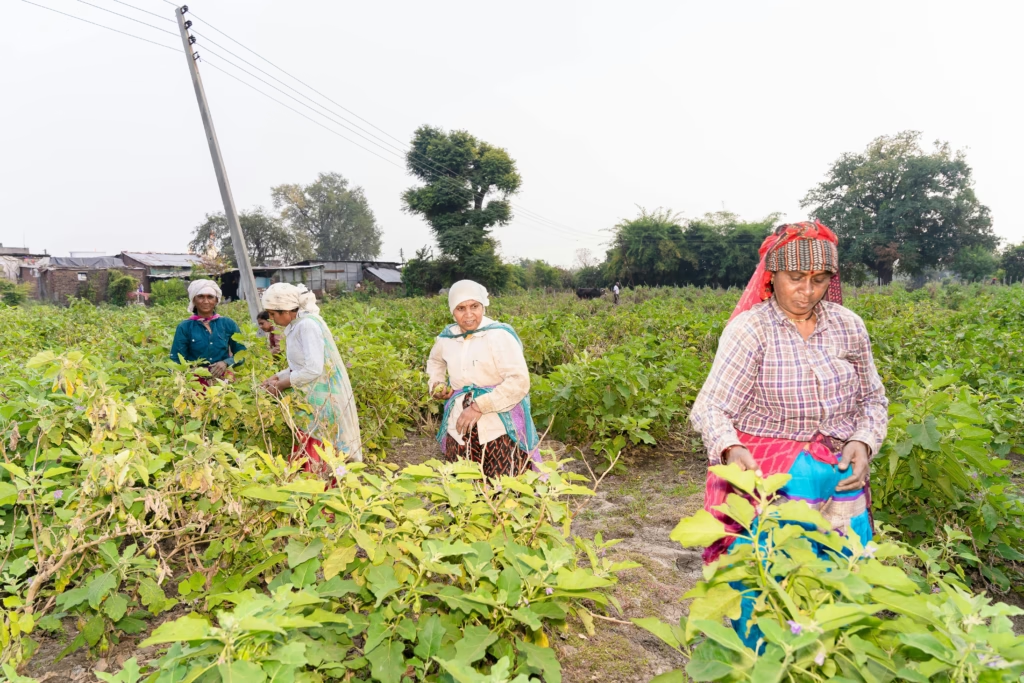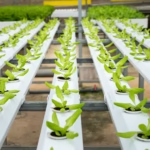
Africa’s agricultural sector holds immense potential. From fertile lands to a growing young population eager to engage in farming, the continent is well-positioned to play a significant role in feeding the world. However, many African farmers remain disconnected from global markets, limited by outdated infrastructure, lack of access to modern farming tools, and minimal exposure to international trade requirements. Bridging this gap is critical—not just for the economic success of African farmers, but for long-term global food security. This is where Ahar Group steps in, actively connecting African farmers to the world stage through a blend of innovation, partnerships, and local empowerment.
The Market Challenge Facing African Farmers
Despite their crucial role in global food production, many African smallholder farmers operate in isolation from major buyers. Most sell their produce at local markets or through intermediaries who often offer unfavorable prices. They struggle with post-harvest losses, lack of financing, and little understanding of quality standards demanded by international buyers.
These challenges create a cycle of low income, limited investment in farming improvements, and minimal growth. To break this cycle, a structural approach is needed—one that offers more than just access to buyers. It requires building trust, ensuring quality, and creating fair trade opportunities that benefit farmers directly.
Ahar Group: More Than Just an Exporter
Ahar Group isn’t just a supplier of agricultural goods—it’s a catalyst for change. As a major player in African agricultural exports, the company focuses on connecting African farmers directly with global buyers. By acting as both a logistics partner and a development agent, Ahar supports farmers through every step of the supply chain.
From sourcing cashews, grains, spices, and oilseeds to packaging and shipment, the company integrates farmers into a transparent and traceable supply chain. But what truly sets Ahar apart is its commitment to building long-term partnerships with producers rather than treating them as mere suppliers.
Key Strategies for Connecting African Farmers
1. Direct Sourcing Partnerships
Ahar works directly with farming cooperatives and individual growers, bypassing unnecessary intermediaries. This approach ensures that farmers receive fair compensation for their produce. It also builds trust and encourages farmers to improve their practices, knowing there is a reliable buyer ready to support their efforts.
These partnerships are not short-term arrangements but strategic collaborations designed to grow over time. This stable relationship structure plays a major role in connecting African farmers to the broader agri-business economy.
2. Training and Capacity Building
Quality is a crucial factor in international trade. Ahar invests in training farmers on post-harvest handling, storage, and quality control. Through regular workshops and on-field training, farmers learn how to meet global export standards—an essential step in unlocking premium markets.
For example, cashew producers learn how to sort, grade, and process nuts to maximize export value. Grain farmers are taught about moisture control, pest management, and proper packaging to reduce losses. These training initiatives elevate the entire supply chain, making it more competitive globally.
3. Market Intelligence and Digital Tools
Understanding market demand is key for success in global trade. Ahar provides farmers with insights into international price trends, buyer preferences, and seasonal demand cycles. By doing this, the company aligns farmer production with actual market needs, reducing waste and ensuring better pricing outcomes.
Incorporating digital tools also aids in connecting African farmers more efficiently. Mobile applications and SMS-based systems allow even rural farmers to receive updates, shipment tracking, and payment details—bridging the digital divide in agriculture.
4. Infrastructure Support
Many African regions still lack basic infrastructure to support effective trade. To address this, Ahar collaborates with local partners to establish collection centers, storage facilities, and small-scale processing units close to farming areas. These investments reduce post-harvest losses and improve product shelf life, ensuring that goods remain export-ready from source to shipment.
By developing local infrastructure, Ahar supports both immediate trade and long-term community growth, reinforcing its mission of connecting African farmers with sustainable opportunities.
Success Stories: Real Impact on the Ground
Take for example a farming cooperative in Côte d’Ivoire that partnered with Ahar to export raw cashew nuts. Before the partnership, the group struggled to find reliable buyers and had limited income due to middlemen. With Ahar’s support, the cooperative gained access to better tools, training, and a ready market. In just two seasons, their income increased by 40%, and they began reinvesting in improved equipment and hiring more workers from the community.
This is not an isolated case. Across West and East Africa, farmers working with Ahar are experiencing similar transformations. Their produce is reaching buyers in Europe, the Middle East, and Asia—proof that connecting African farmers directly with markets works.
Building a Sustainable Future for African Agriculture
By supporting farmers with education, infrastructure, and fair market access, Ahar is building a more inclusive and sustainable agri-business model. The benefits go beyond financial gain. Farmers become more resilient to climate shocks, more open to innovation, and more empowered to grow their communities.
In turn, global buyers receive high-quality, traceable products that meet growing consumer demands for ethical sourcing. It’s a win-win model that proves agriculture can be a driver of development when executed responsibly.
Conclusion
Empowering African agriculture is not just about increasing exports—it’s about ensuring that the people growing the food are full participants in the global supply chain. Ahar Group’s commitment to connecting African farmers goes beyond trade. It represents a shift toward fairness, transparency, and long-term prosperity for the continent’s agricultural communities.
As Ahar continues to expand its reach and deepen its farmer relationships, it offers a powerful example of how business can drive meaningful change. By investing in people, respecting the land, and embracing innovation, Ahar is shaping a future where African farmers are no longer left behind—but lead the way forward.











Add comment